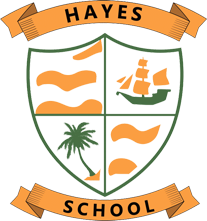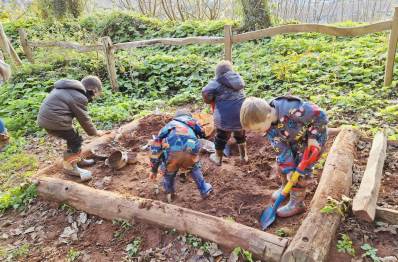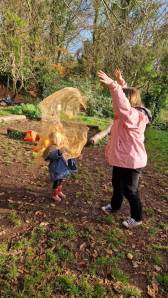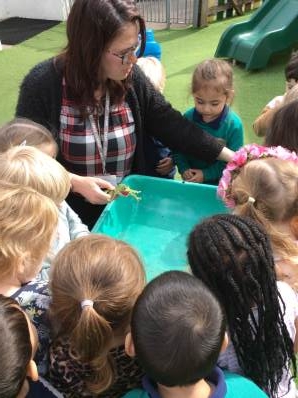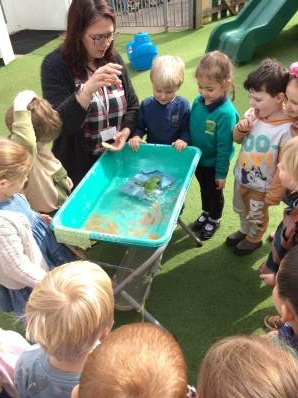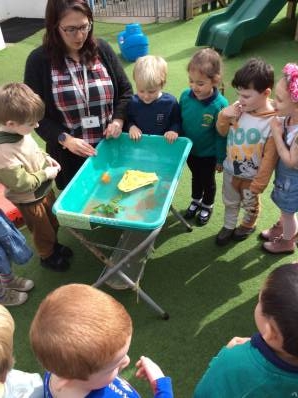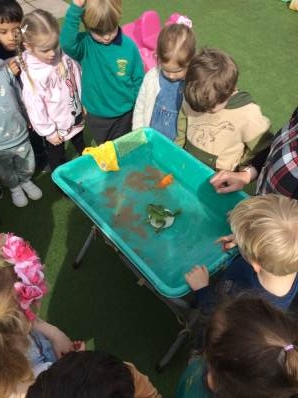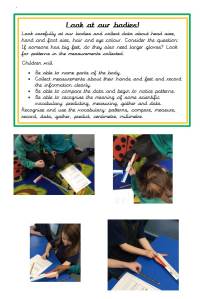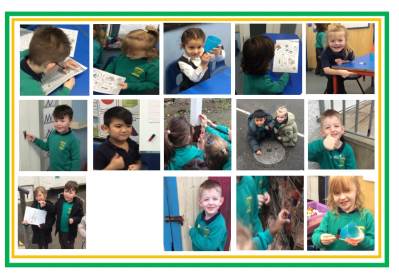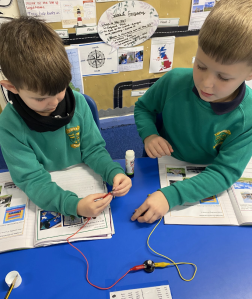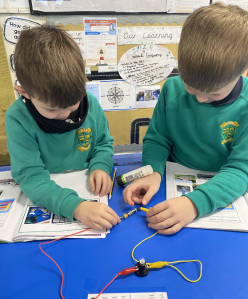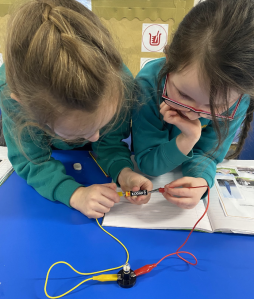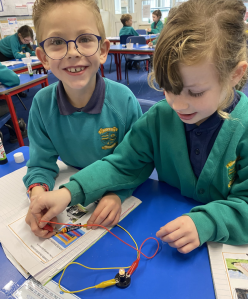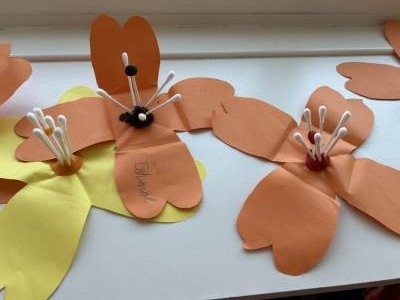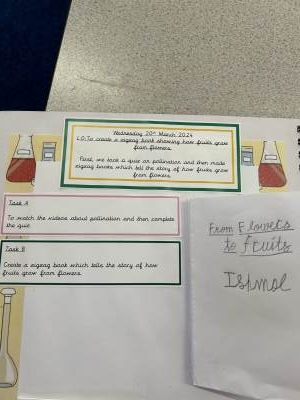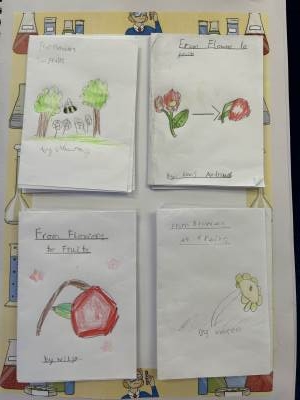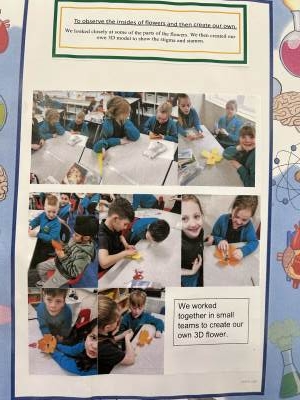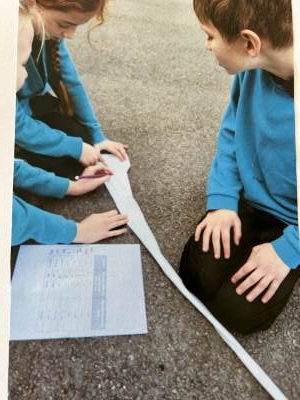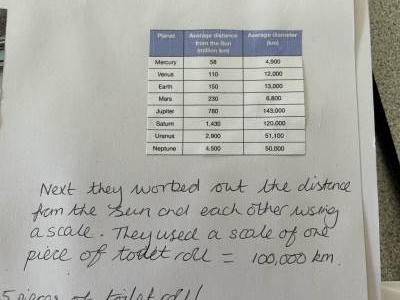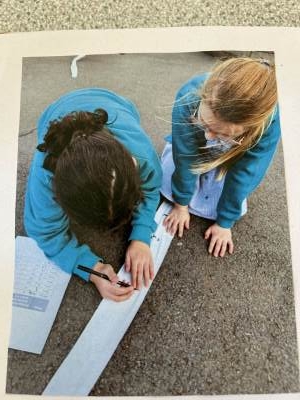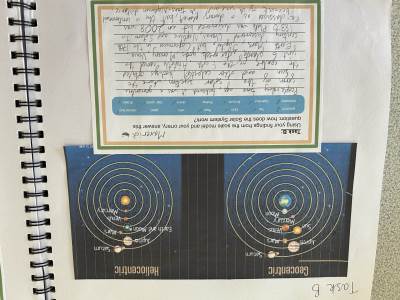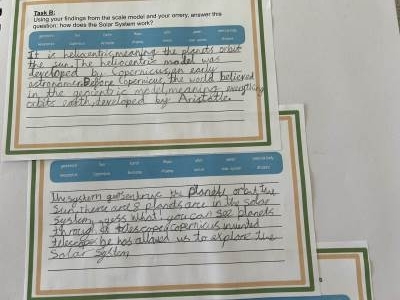Science
Our intention at Hayes is about developing children’s ideas and ways of working that enable them to make sense of the world. Through building up a body of key foundational knowledge and concepts, children are encouraged to recognise the power of rational explanation and develop a sense of excitement and curiosity about natural phenomena. All children are encouraged to understand how science can be used to explain what is occurring, predict how things will behave, and analyse causes through investigation and in addition, using and applying process skills and thinking creatively.
The National Curriculum for Science aims to ensure that children:
- develop scientific knowledge and conceptual understanding through the specific disciplines of earth science, biology, chemistry and physics
- develop understanding of the nature, processes and methods of science through different types of science enquiries that help them to answer scientific questions about the world around them
- are equipped with the scientific knowledge required to understand the uses and implications of science, today and for the future.
How does Science at Hayes School reflect our school’s setting?
- We believe that a broad and balanced science education is the entitlement of all children, regardless of ethnic origin, gender, class, aptitude or disability:
- Hayes School is the neighbour of Paignton Zoo - we have close links with the zoo and the education staff who work there through our whole school Conservation Learning Experience. These supportive environmental conditions foster strong relationships and community. These include positive sustained relationships that foster attachment and emotional connections; physical, emotional, and identity safety; and a sense of belonging and purpose.
- Productive science teaching and learning strategies that support motivation, competence, and self-directed learning beginning with Forest School in the EYFS. These curriculum, teaching, and assessment strategies feature well-scaffolded instruction and ongoing formative assessment that support conceptual understanding, take the children's prior knowledge and experiences into account, and provide the right amount of challenge and support on relevant and engaging learning tasks.
Our Science Curriculum at Hayes is designed to ensure:
- Sufficient curriculum time is allocated for pupils to embed what they have learned in long-term memory through extensive practice before moving on to new content.
- The component knowledge pupils need in order to read, write, represent and talk science is identified and sequenced.
- Curriculum plans consider how component knowledge introduced at one point in time influences future learning. This ensures that knowledge builds incrementally from pupils’ prior knowledge and so pupils’ misconceptions are less likely.
- The curriculum anticipates where pupils are likely to hold misconceptions. These are explicitly addressed, and pupils learn how the misconception is different to the scientific idea.
- Pupils know when and why models and rules can be used in science, which includes knowing what they can and cannot be used for.
Subject Implementation:
How do we teach your subject here at Hayes?
The teaching of science will be implemented through the development of the following key headings as outlined below:
- substantive and disciplinary
- conceptual and procedural
- discovery learning (enquiry-based teaching approaches and scientific enquiry in a real world context)
Science follows the National Curriculum; objectives are delivered through either weekly lessons or as a blocked investigation, where relevant. Our disciplinary knowledge ensures skills specific to being a scientist are taught each and every year, so, our units of study always have a practical element. The curriculum makes use of prior substantive knowledge and provides clear references on how learning will be used in future enquiries. Science learning is structured around the repeated themes of chemistry, biology, physics and earth sciences. These unit studies are assigned key knowledge and vocabulary to be learnt and understood. As part of our learning journeys, we think carefully about where science can be taught as a cross curricular strength. We focus on three English link and three Maths link lessons across the year so that children have a chance to apply their skills to Science in a real world context. Where it is relevant to do so, there could be aspects of scientific teaching taught in maths lessons e.g. collection of and interpretation of data, graphing and statistics. We also study inspirational and Influential people within Science from an historical and modern perspective so that the children have an understanding of where scientific ideas originate and are built upon by scientists in later times.
Discovery learning - children are given practical activities to introduce them to scientific equipment, objects and phenomena, such as air resistance, dissolving and melting, making a light bulb work, making shadows or observing living things in their habitats, BEFORE they are taught the substantive conceptual knowledge. The substantive conceptual knowledge needs to be taught explicitly and BEFORE the children undertake scientific enquiry.
Scientific enquiry - involves pupils using previously learnt substantive and disciplinary knowledge together to answer specific scientific questions using the scientific enquiry types as set out in the National Curriculum. Scientific enquiry can be scaffolded or independent.
We plan using the Hamilton Science lessons as our core teaching for some hands-on experiments, however this is enhanced by utilising other STEM websites such as ASE, PLAN, PSTT, TAPS ASSESSMENT PROJECT to vary scientific provision for all our children.
All year groups teach science twice a week with a focus being on one lesson for the investigation and the follow-up lesson for any relevant discussion or recording scientifically. Lessons are supported by science experiences offered via trips eg.visiting Paignton Zoo, local beaches and involving Torbay Coast and Countryside education.
Opportunities for children to meet the full range of scientific investigative approaches entail pattern seeking, exploring, problem solving, fair testing and analysing secondary sources.
